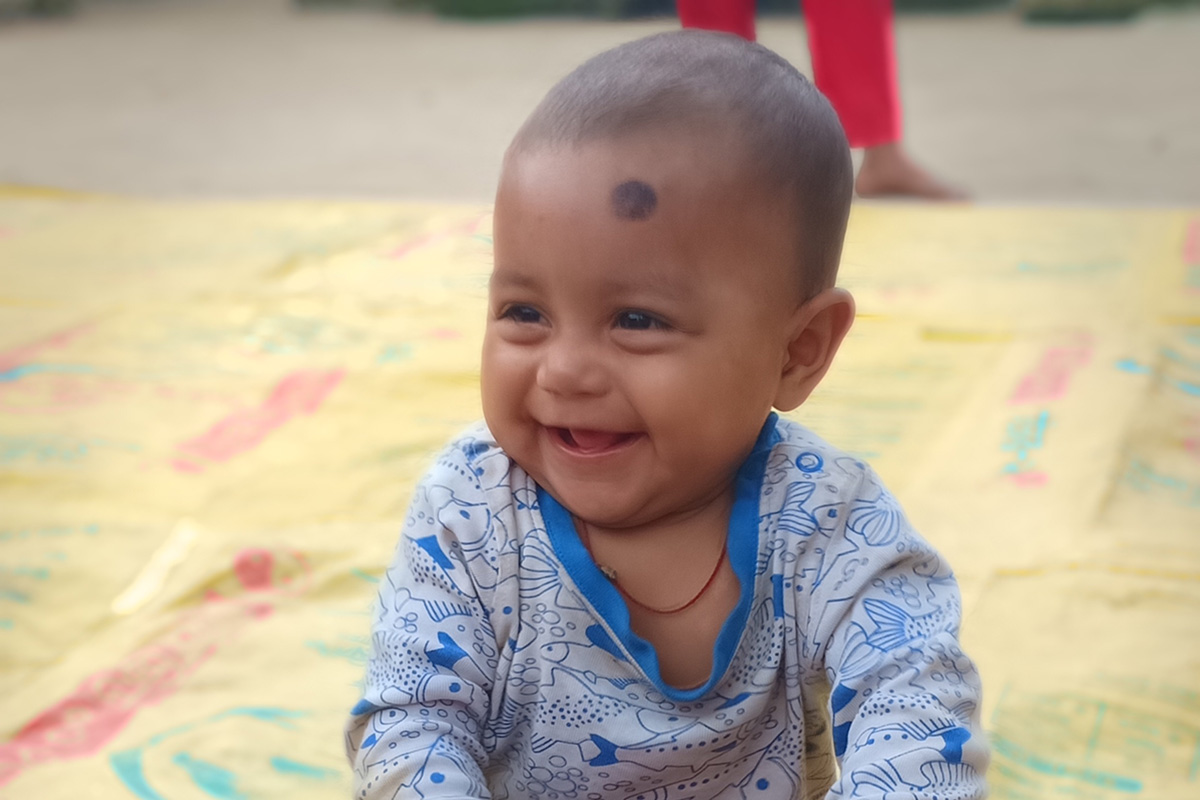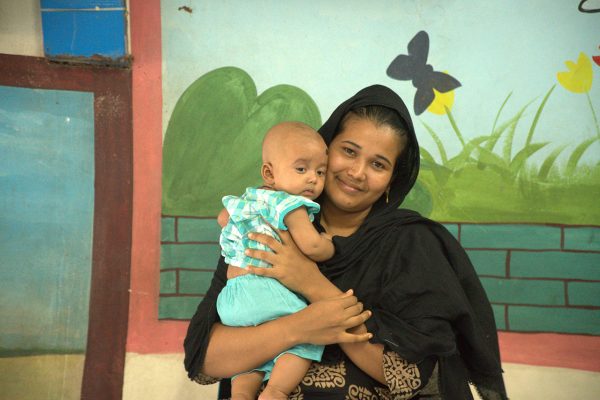Early childhood development for a future-proof society
Reading Time: 3 minutes
Every child has the right to develop to their full potential, as per the United Nations Convention on the Rights of the Child, yet 200 million children all over the world are unable to do that.
The future of a country depends on its children. To celebrate and raise awareness regarding their rights, Bangladesh observes National Children’s Day every year on March 17. As we celebrate this week, let us reflect on how well Bangladesh fares when it comes to ensuring rights for children.
Every child has the right to develop to their full potential, as per the United Nations Convention on the Rights of the Child, yet 200 million children all over the world are unable to do that. Why? The trajectory of a child’s development largely depends on what happens during the first five years of life, often referred to as the ‘window of opportunity’. By far, the biggest impediments to development during this crucial time are poverty and undernutrition. In Bangladesh, approximately 1.9 million children under five live in extreme poverty. 36% of all children suffer from stunting (low height for age) and 14% suffer from wasting (low weight for age). Only one fifth of all children between three to five years are able to read and do basic math appropriate for their age. In the poorest households, children as young as seven months start showing cognitive deficiencies.
Without doubt, we have ample room for improvement in utilising the window of opportunity. The cost of inaction is high – global estimates suggest subpar development during early childhood leads to approximately 20% losses in adult productivity. On the other side of the coin, research shows that every dollar invested in early childhood development yields between 16-17 USD worth of economic returns. The challenge is that people living in poverty are almost always unable to afford early stimulation, good nutrition and healthcare for their children, which are vital cornerstones of early childhood development.
 Bridging this gap is where BRAC’s Health, Nutrition and Population Programme (HNPP) steps in. In partnership with the Government of Bangladesh and the World Bank, HNPP is delivering early childhood development interventions to the households living in the most severe poverty in seven districts (Mymensingh, Jamalpur, Sherpur, Lalmonirhat, Kurigram, Gaibandha, Nilphamari) through the Income Support Programme for the Poorest Project. Mothers of children under five gather for courtyard sessions, where community facilitators impart age-specific nutrition education. Conditional cash transfers are disbursed so that mothers can feed their children nutritious food. Children are engaged in age-specific play-based activities which foster their cognitive development, while mothers learn affordable means to create toys. Two weeks after the courtyard sessions, mothers and their children gather again for the same activities – this time led by one of the beneficiary mothers. By the end of last year, 415,000 cognitive development services were provided nationwide. Together, these activities facilitate an enabling environment for optimum cognitive development of children living in poverty.
Bridging this gap is where BRAC’s Health, Nutrition and Population Programme (HNPP) steps in. In partnership with the Government of Bangladesh and the World Bank, HNPP is delivering early childhood development interventions to the households living in the most severe poverty in seven districts (Mymensingh, Jamalpur, Sherpur, Lalmonirhat, Kurigram, Gaibandha, Nilphamari) through the Income Support Programme for the Poorest Project. Mothers of children under five gather for courtyard sessions, where community facilitators impart age-specific nutrition education. Conditional cash transfers are disbursed so that mothers can feed their children nutritious food. Children are engaged in age-specific play-based activities which foster their cognitive development, while mothers learn affordable means to create toys. Two weeks after the courtyard sessions, mothers and their children gather again for the same activities – this time led by one of the beneficiary mothers. By the end of last year, 415,000 cognitive development services were provided nationwide. Together, these activities facilitate an enabling environment for optimum cognitive development of children living in poverty.
Similarly simple and effective interventions are delivered nationwide to improve the lives of children living in poverty. Within the window of opportunity, the 1000 days between conception and a child’s second birthday are particularly vital for brain development. Nutrition Interventions in BRAC (NIB), the largest nutrition project in HNPP’s portfolio, focuses on these 1000 days. Operating across 24 districts, NIB provides counselling on maternal and child nutrition, as well as infant and young child feeding practices. NIB’s community nutrition workers also deliver micronutrient powder sachets named ‘Pushtikona’, which contain Vitamins A and C, Iron, Folic Acid and Zinc. In 2018, HNPP provided 1.4 million counselling sessions on exclusive breastfeeding, 52 million sachets of Pushtikona and 682,391 antenatal care sessions for pregnant women. Synergies between these interventions address micronutrient deficiencies and undernutrition among children, laying the groundwork for cognitive development.
Despite the scale of current activities, investments in nutrition and early childhood development are far from sufficient. According to the World Bank Group’s Investment Framework for Nutrition, investments of USD 70 billion over the course of the next decade will be necessary to achieve the global targets stipulated by the SDGs. The bulk of these investments will need to be concentrated in countries such as Bangladesh. As Bangladesh transitions to a middle income country within the next few years, it is imperative right now to ensure that children are nurtured well. This National Children’s Day, let’s pledge to invest in early childhood development, for the prosperity of our children, and our nation.
Syeda Nafisa Nawal is a manager for partnership management and communications at BRAC Health Nutrition and Population Programme.





